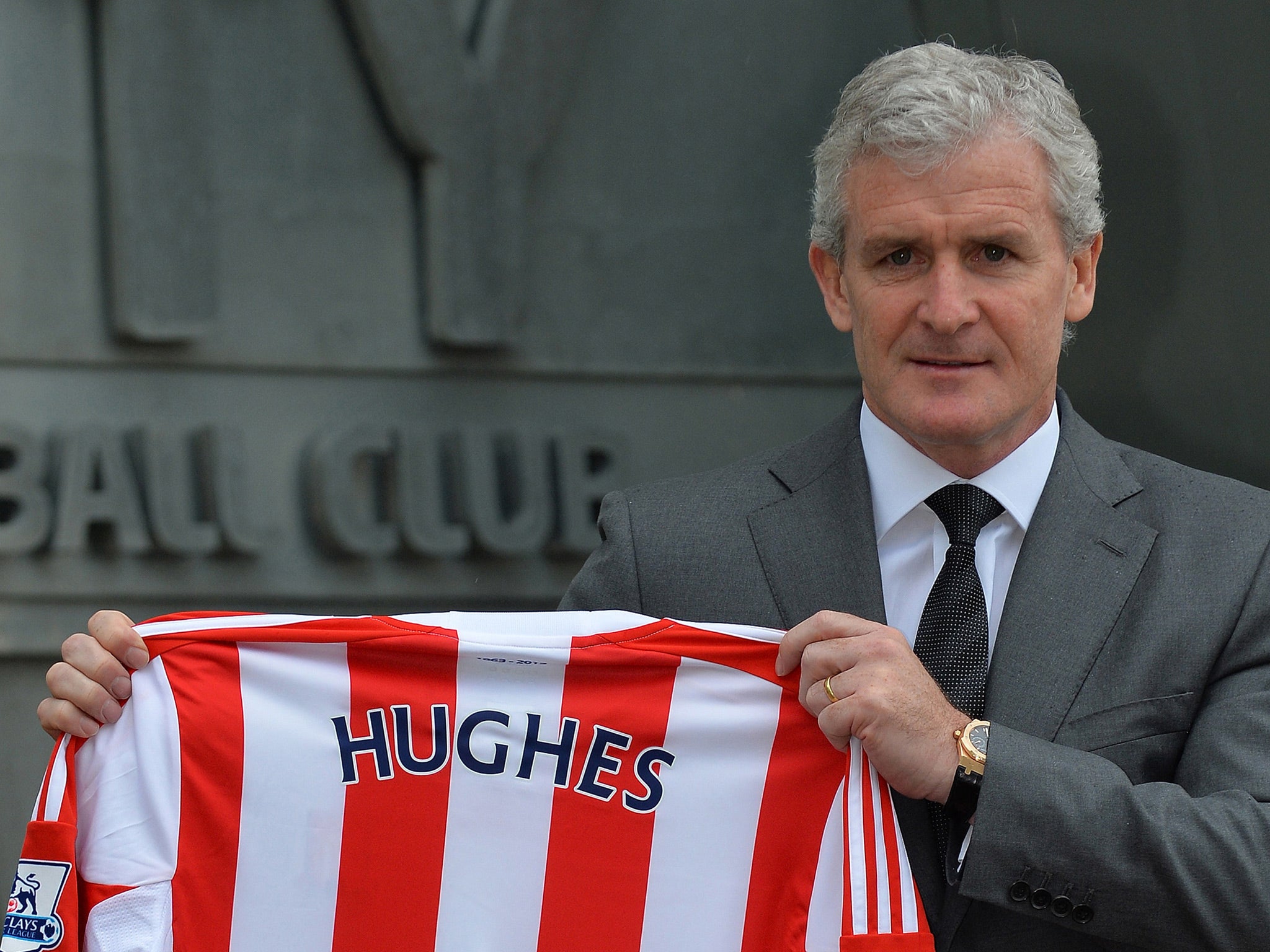Stoke City appoint Mark Hughes: Tony Pulis legacy brings danger as well as safety
The former QPR and Manchester City manager succeeds his fellow Welshman at the Britannia

Your support helps us to tell the story
From reproductive rights to climate change to Big Tech, The Independent is on the ground when the story is developing. Whether it's investigating the financials of Elon Musk's pro-Trump PAC or producing our latest documentary, 'The A Word', which shines a light on the American women fighting for reproductive rights, we know how important it is to parse out the facts from the messaging.
At such a critical moment in US history, we need reporters on the ground. Your donation allows us to keep sending journalists to speak to both sides of the story.
The Independent is trusted by Americans across the entire political spectrum. And unlike many other quality news outlets, we choose not to lock Americans out of our reporting and analysis with paywalls. We believe quality journalism should be available to everyone, paid for by those who can afford it.
Your support makes all the difference.What might be the final top-flight test of Mark Hughes’ managerial career could also be the hardest. Having been dismissed from two jobs and walked out of one other in the last four years, a failure at Stoke City could see the end of him at Premier League level, possibly forcing him out, to look for work in foreign or international management instead.
But Hughes, just as competitive and ambitious a coach as he was a player, has taken on a task without comparison in recent years. There are not many clubs like Stoke and not many managers like Tony Pulis, who in a seven-year second tenure at the Britannia Stadium dragged the club into the Premier League and kept them there, with a brand of football that made no compromises to anyone else’s notions of how the game ought to be played.
That uniqueness was its weakness as well as its strength. Pulis leaves behind a very deep impression and Hughes will have to fight and fight, destroy as well as create, to impose himself.
The problem is that, with the exception of Blackburn Rovers, Hughes has often struggled to build a team with identity. At Blackburn his side played fast, assertive, physical football – leading them to finishes of sixth and seventh. With the addition of some wingers and midfielders, that must be his model at Stoke.
But at Manchester City he struggled to create a team to convince the owners that he was the man for the job. He stabilised the mess he inherited in 2008 but when the money came in he could never quite balance the team in a fairly reckless 4-2-4 system, and the results were not good enough.
At Queen’s Park Rangers, again, he made too many changes for his own good, and his messy set of individuals nearly went down in 2012 and did, under Harry Redknapp, last season. Up the road at Fulham the opposite was true, as he merely stuck with Roy Hodgson’s blueprint for a year before walking out, a move he now regrets.
While big-money mistakes have been made at City and Rangers, as he appeared almost enchanted by the CVs of some players only joining for money, he clearly has an eye for talent. His recruitment of Roque Santa Cruz and Christopher Samba at Blackburn, Pablo Zabaleta and Vincent Kompany at pre-takeover City and Mousa Dembélé at Fulham are all testament to that.
This summer he will have money to spend and there is an obvious need for players who can run with the ball, pass it or even do both.
But the culture at Stoke is deeply ingrained and the man who has struggled to contain the chaos in the past now has a very different job to do. If City and Rangers were too much in flux, Stoke risks the opposite problem after years of stolid stability. There is a basis here, but Hughes will have to fight desperately hard to meld it into something else – something exciting – without destroying the safe foundations.
Join our commenting forum
Join thought-provoking conversations, follow other Independent readers and see their replies
Comments